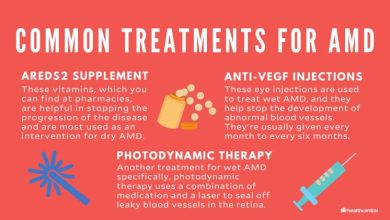Melasma and PCOS: What Doctors Want you to Know

Melasma shows up as dark patches on your face. While it may not be physically harmful, you may want to visit a melasma clinic in Singapore for treatment if the patches that come with it affect your quality of life.
The patches can appear on your cheeks, forehead or upper lip and there are so many factors that can trigger it. One of the most notable triggers is polycystic ovary syndrome, or PCOS.
PCOS is a hormone condition that affects 6 to 13 percent women of childbearing age. When you have PCOS, your body may produce extra male hormones called androgens.
These can disrupt your normal cycle and affect your skin. Doctors now know that the hormonal shifts in PCOS can make melasma worse or more likely to return after treatment.
How does PCOS Contribute to Melasma?
PCOS causes an imbalance in female hormones where your ovaries begin to produce too much testosterone. That shift can upset the normal ratio of oestrogen to progesterone and also affect melanocyte cells in your skin.
These cells make pigment, and excess male hormones can trigger them to overproduce. Melasma feeds on hormone changes which is why you may notice patches appear or darken before your period.
Pregnancy and certain contraceptives can do the same. In PCOS, these hormone swings happen often and without warning which can make melasma harder to control.
If your doctors suspect that there could be a risk of PCOS, they will look for other PCOS signs alongside melasma. For example, they may look for irregular periods, excess hair growth or acne.
They would then proceed to treat the root PCOS issue to try and reduce melasma flare-ups. A dual approach often works best as it manages both your hormones and your skin.
Who is most Likely to be Affected by Melasma and PCOS?
Melasma and PCOS often affect younger women, typically in their twenties or thirties. If you have a family history of PCOS or melasma, your risk is higher as your genes influence how your body handles hormones and pigment.
You’re also most likely to be affected by melasma and PCOS if you live in a sunny climate like Singapore. Such climates can also make melasma worse because UV rays stimulate pigment cells.
If you already have PCOS-related hormone changes, the sun can push your skin to produce even more pigment. Other risk factors include stress, certain medications and thyroid disorders.
Chronic stress raises cortisol, another hormone that can disturb your balance. Some antidepressants, anti-seizure drugs or skin creams can trigger melasma as well.
How do you Diagnose Melasma?
To diagnose melasma, your doctor will begin by looking at the symptoms you’re having. Melasma usually shows up as flat, brownish patches on sun-exposed areas.
You may see these patches on your forehead, upper lip or cheeks. The edges are usually irregular and the patches may darken after time in the sun or during hormone swings.
PCOS symptoms can vary with some women having infrequent or absent periods. Others develop acne or excess hair on the face and body.
You may also notice sudden weight gain or difficulty losing weight. Your doctor may diagnose melasma with a simple skin exam where they use a Wood’s lamp—an ultraviolet light—to see how deep the pigment goes.
For PCOS, they may start with a blood test to measure your hormone levels, including testosterone and insulin. An ultrasound scan of your ovaries can show small cysts typical of PCOS.
Your doctor may also ask about your menstrual cycle, family history and lifestyle. Combining these findings gives a clear picture of how melasma and PCOS interact in your case.
Now when it comes to treating melasma and PCOS, your provider may need to adopt a two-fold strategy: balancing hormones and reducing pigment. Here are the main treatments you may be recommended:
- Hormonal management: Your doctor may prescribe combined oral contraceptives to regulate your hormones. These pills balance oestrogen and progesterone, which can reduce PCOS symptoms and slow melasma flare-ups. It may take three to six months to see an effect on your skin.
- Topical pigment inhibitors: Creams with azelaic acid, hydroquinone or tranexamic acid can lighten dark patches. If you’re prescribed these, you will want to apply them once or twice daily to clean, dry skin. These agents block the pathways that produce excess melanin. Consistent use for at least eight weeks often yields noticeable improvement.
- Chemical peels and microdermabrasion: Supervised peels or skin polishing can also help lift pigmented cells from the surface. Glycolic acid peels are common for melasma but you may need three to six sessions spaced a few weeks apart. These treatments also boost cell turnover and can improve skin texture.
- Laser and light therapies: Devices like picosecond lasers or intense pulsed light (IPL) target pigment deep in the skin. They break up melanin particles so your body can clear them naturally. You may need multiple sessions for best results. A skilled dermatologist will tailor the settings to minimise risk of rebound hyperpigmentation.
- Lifestyle and diet changes: Eating a balanced diet rich in antioxidants can support skin health and hormone balance. Foods like berries, leafy greens and fatty fish offer nutrients that help repair tissue. Avoiding high-glycaemic foods—white bread and sugary snacks—can reduce insulin spikes that worsen PCOS. Drinking plenty of water aids cell repair and toxin clearance.
In Closing
Melasma and PCOS often go hand in hand as hormonal shifts in PCOS can trigger or worsen melasma patches. If you’re looking for the best chance at clear, even skin, you may need a combined approach—hormone balance, targeted skin therapies and strong sun protection.
Keep up with regular check-ups for your doctor to tweak treatments and catch any new issues early.
We provide tailored melasma management and advanced skin treatments to clear dark patches and balance your cycle. If you have stubborn melasma, please your consultation now and start your personalised plan for lasting results and confident skin. For an easy and thorough assessment, call or visit us today at;
One Face Skin Care – Melasma | Pigmentation | Acne Treatment Singapore
1 Tras Link, #02-03/04 Orchid Hotel, Singapore 078867
https://onefaceskincare.com.sg/
+65 8809 9066




